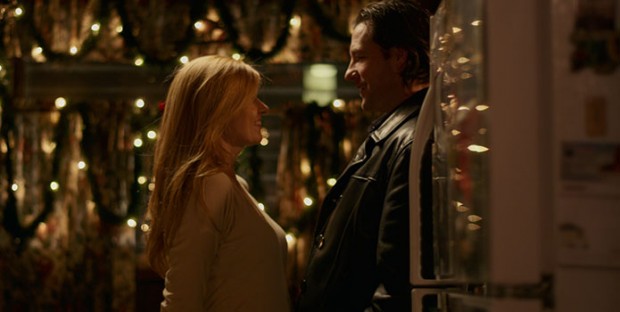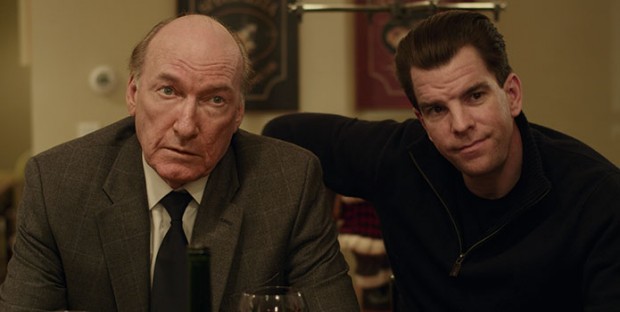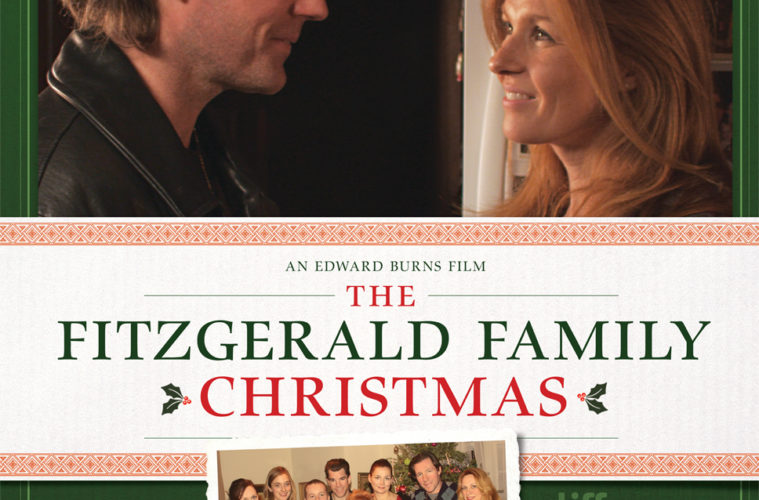Since his ultra-low budget debut The Brothers McMullen in 1995, actor/writer/director Edward Burns has carved out a niche for himself as a filmmaker. And though the niche be small, it is dedicated. The stories he tells all exist in that urban/suburban world of “New York City.” It’s a city that extends from Manhattan all the way to Long Island, where men own bars and want sex and women wish their men appreciated them more.
Slowly but surely, Burns has crafted a voice that was always honest if not a bit manic into something a bit more pensive and considerate. That maturity is on full display here with the filmmaker’s latest, The Fitzgerald Family Christmas. Concerning a large Irish family and their father’s attempt to reconcile with them all on Christmas years after abandoning them, Burns’ film is sure to give every member of the Fitzgerald clan his or her time to act out or act up without spreading the emotions too thin. While many insults and accusations are thrown around, this large group of talented performers play the part of “family” with equal parts honey and vinegar.

Along with the return of Mike McGlone — who starred alongside Burns in both McMullen and She’s The One — are recent Burns regulars Kerry Bishe and Caitlin Fitzgerald, as well as Tom “Scottie Smalls from The Sandlot” Guiry playing the runt of the litter.
And though everyone fits right in, the real treat here is Connie Britton, who’s presence as Gerry’s budding love interest is short but very, very sweet. Burns and Britton have a natural chemistry that brings both Burns the writer and Burns the actor out in a way we have not seen in a while. The filmmaker has stated that this film was, in many ways, an excuse to return to his McMullen roots (Britton, along with McGlone, got her break in Burns’ first film), and it shows. Surrounded by collaborators both old and new, this bittersweet holiday film has just enough comedy and drama to fill out its scant hour-and-a-half running time.

The many of scenes of dialogue play out at a relaxed pace that sometimes gives way to stagnation, but mostly establishes a comfortable sense of time and place and the people that populate both. There is also a noticeable growth in visual identity this time around, courtesy of longtime Burns cinematographer William Rexer. It’s clear here, unlike some of his more recent micro-budget outings, that certain lenses were chosen for certain camera set-ups to either expand or restrict the space of each scene. Given the condensed setting of these proceedings — especially when considering the sheer number of family members — the reliance on master shots as opposed to awkward coverage is greatly appreciated. This kind of visual manipulation feels like a new trick for the veteran director.
The story, on the other hand, is the oldest trick in his book. If ever there was a time for Mr. Burns to broaden his dramatic horizons, it seems to be now. Put this devoted group of actors in a slightly fresher, slightly riskier narrative, and the Burns niche will grow considerably.
The Fitzgerald Family Christmas is now on VOD and in limited release.

